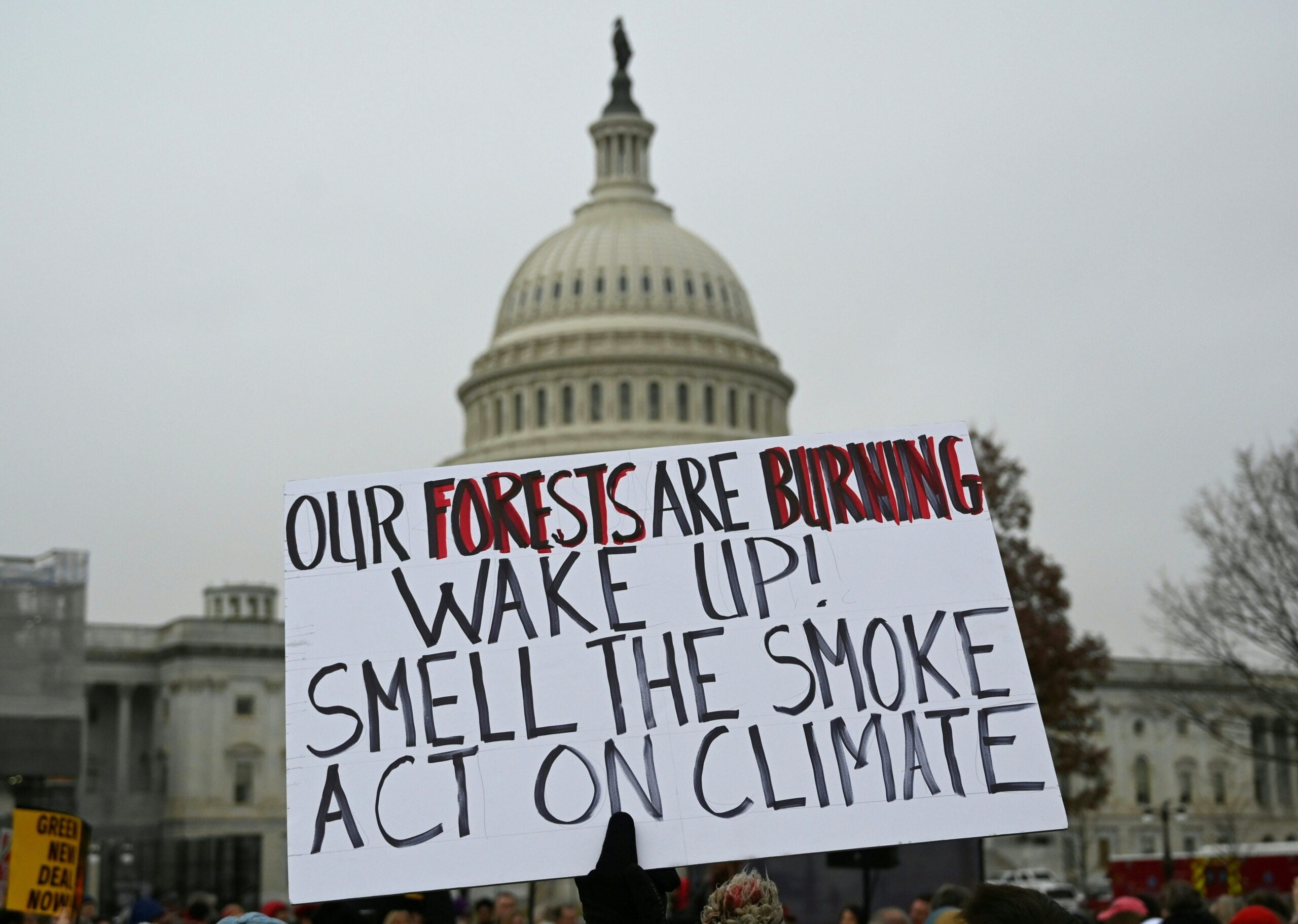
Just 4% of US adults named climate change as the number one priority facing the country, show statistics from the VoteCast exit poll published by the Associated Press. The numbers also prove the issue is a partisan one, with 86% of the people who put it top voting for Democratic candidate Joe Biden and just 11% for President Donald Trump. Separate statistics show that counties with more people concerned by climate change swung towards Biden, while those who are less worried about the impacts of a warming world plumped for Trump.

Discover B2B Marketing That Performs
Combine business intelligence and editorial excellence to reach engaged professionals across 36 leading media platforms.
Which areas suffer most from climate change?
Ironically, however, areas that moved towards Trump are more likely to be most affected by the impacts of climate change.
Figures from Climate Impact Lab show climate change is expected to have varying economic repercussions on different parts of the US.
As temperatures rise, mortality costs – the economic damage caused by deaths due to extreme temperatures – are expected to fall in cooler northern regions and Rocky Mountain states (which tend to lean towards the Democrats), while they are likely to soar in hot south-western states and across the Republican Midwest. Hotter states are also likely to experience rising energy costs as air conditioning becomes more crucial, and other negative effects such as crop damage and lower workforce productivity. Flooding from rising sea levels, and stronger and more destructive hurricanes are also likely to cause increasing chaos in these areas.
The Climate Impact Lab researchers modelled the effects of climate change across the US to assess the local economic damage to each county.

US Tariffs are shifting - will you react or anticipate?
Don’t let policy changes catch you off guard. Stay proactive with real-time data and expert analysis.
By GlobalDataOn average, the figures show that the median county returning a Democratic majority this week is expected to lose just over 2% of GDP by the end of the century due to the various impacts of climate change, while the median Republican one will lose over 4%.
The average masks the extent of the damage, however, with parts of Florida and Texas expected to lose more than a fifth of GDP under “worst case” scenarios, which assume high population growth, slow technological development, and no new policies to mitigate climate change.
If these parts of the US are more likely to suffer damage from climate change, it raises an important question: why would they choose to vote for a president who has called global warming a Chinese hoax and has removed America from the Paris Agreement?
It’s still the economy, stupid
Another early exit poll – from Edison Research – provides part of the answer.
It shows that, as in 2016, the economy was the most popular issue when people were asked to list the topic most pertinent to their vote (in the Associated Press poll it was the second most popular option after the Covid-19 pandemic). As many as 35% of voters identified the economy as a priority this week (down from 52% in 2016) – and the majority of those people voted Republican.
Donald Trump secured an 82% share of the vote among those most concerned about the economy – a big shift compared with 2016, where the majority of voters prioritising it supported the Democratic candidate Hillary Clinton.
Crucially, people in areas that swung to Trump are more likely to work in industries threatened by action to tackle climate change. Counties with proportionally more employment in natural resources and mining – including coal mining, as well as oil and gas extraction – had larger swings towards the Republicans on average.
These findings suggest that while people may agree the climate is an important issue and may even be already experiencing its impacts in terms of extreme weather events, it isn’t yet an overriding concern for many voters. Instead, more immediate economic concerns take priority.
Those people who will be most adversely affected by global heating voted Trump in bigger numbers than usual – and that is partly because they still believe their jobs depend on it.
Additional reporting by Nicu Calcea.



